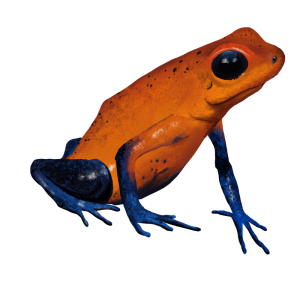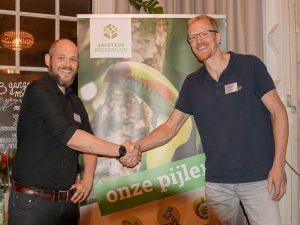Why one forest is not like the other
Written by: Zoë Schreurs
Humanity has cleared countless acres of forest over the centuries. But not all forests are the same. Sure, a forest in Costa Rica has trees and squirrels, just like a forest here in Europe. But while we can certainly draw comparisons between our temperate forests and tropical forests, there are many differences. In this blog post, we take a closer look at why tropical rainforest logging is even more disastrous and how the consequences extend much further. And logging is certainly ongoing. Globally, the tropics lost 4.1 million hectares of primary forest in 2022, 10% more than in 2021, the platform Global Forest Watch reported. (more…)
What is sustainability and why is it important? Sustainability is a much-used word, for example, sustainability can have a meaning in relation to the environment and climate, but it can also have a social and economic meaning. Because it is such a broad concept, it can be quite difficult to properly understand what sustainability actually […]
Discover our special partnership with the Bromelia Specialist, where passion for the Bromelia plant and the conservation of Costa Rican rainforest come together. For three years, the Bromelia Specialist has supported the work of Adopteer Regenwoud in protecting the origins of the Bromelia plant, while providing Europe with the most beautiful Bromelia products. Behind the […]
By Zoë Schreurs
In Costa Rica, you can’t ignore them: the Oophaga pumilio. Pumilio means dwarf, and although they are barely 3 cm tall, it is hard to miss the poisonous strawberry frogs. In English, they are called Strawberry Poison Dart frogs because indigenous peoples used to use their poison to makepoison darts. They are also affectionately called the “blue jeans frog,” because they often look like red frogs in jeans. Although they are by no means all the same colors. There are some that are completely red or blue, rather yellow, green or orange, or with black stripes or dots. In total, there are some 15 to 30 color variations.
(more…)
In the spring of 2023, there was suddenly an opportunity to go to Costa Rica for Adopt Rainforest. I was also in Costa Rica a year earlier and there someone tipped me off about an organization of two Dutch guys who were working to protect and restore the rainforest. When I got home I decided […]
With green plants that originated in the tropical rainforest. By: Annemarie Silkens Costa Rica is known for its amazing flora and fauna, especially in the rainforests and cloud forests. Costa Rica‘s plant world is very extensive and varied. Over 12,000 different plant species (of which more than 1200 species of orchids!) are found. Climate, soil […]
In recent years we have already seen many rare and unusual animals in our reserve such as the Northern Nacked-tailed Armadillo, Black-and-White Hawk-Eagle and several felines. However, what we recently encountered is many times more interesting to scientists. In 1989, Epigomphus houghtoni, the Limon Knobtail, a dragonfly species was described by Stephen Brooks based on […]
This beautiful blue butterfly, measuring up to 15-20 cm, seems to appear and disappear with every flick of its wings. In fact, its underside is a clever trick of Mother Nature. On the underside, it is inconspicuous reddish-brown, with eyes to deter attackers. The bright iridescent blue, in turn, is to deter competition and attract females.
(more…)
Stichting Adopteer Regenwoud’s research project is entering an exciting new phase thanks to a long-term collaborati on with Utrecht University. The foundation was ready for a new step to professionalize the research project and Utrecht University was looking for a stable and reliable partner in Central America to conduct solid research in the rainforest. So for both parties this is a wonderful collaboration! Because of this we will make a big step in professionalizing our current research on biodiversity in our reserve. Together with the visiting students we will focus on scientific research in which the diversity and development of nature in our reserve, with an emphasis on flora, is central.
on with Utrecht University. The foundation was ready for a new step to professionalize the research project and Utrecht University was looking for a stable and reliable partner in Central America to conduct solid research in the rainforest. So for both parties this is a wonderful collaboration! Because of this we will make a big step in professionalizing our current research on biodiversity in our reserve. Together with the visiting students we will focus on scientific research in which the diversity and development of nature in our reserve, with an emphasis on flora, is central.
(more…)
Let’s start right away with a fun fact: Costa Rica covers only 0.3% of the Earth’s surface, but you will find almost 5% of the world’s flora and fauna species! Per area, Costa Rica has the highest biodiversity in the world!
(more…)

 on with Utrecht University. The foundation was ready for a new step to professionalize the research project and Utrecht University was looking for a stable and reliable partner in Central America to conduct solid research in the rainforest. So for both parties this is a wonderful collaboration! Because of this we will make a big step in professionalizing our current research on biodiversity in our reserve. Together with the visiting students we will focus on scientific research in which the diversity and development of nature in our reserve, with an emphasis on flora, is central.
on with Utrecht University. The foundation was ready for a new step to professionalize the research project and Utrecht University was looking for a stable and reliable partner in Central America to conduct solid research in the rainforest. So for both parties this is a wonderful collaboration! Because of this we will make a big step in professionalizing our current research on biodiversity in our reserve. Together with the visiting students we will focus on scientific research in which the diversity and development of nature in our reserve, with an emphasis on flora, is central.